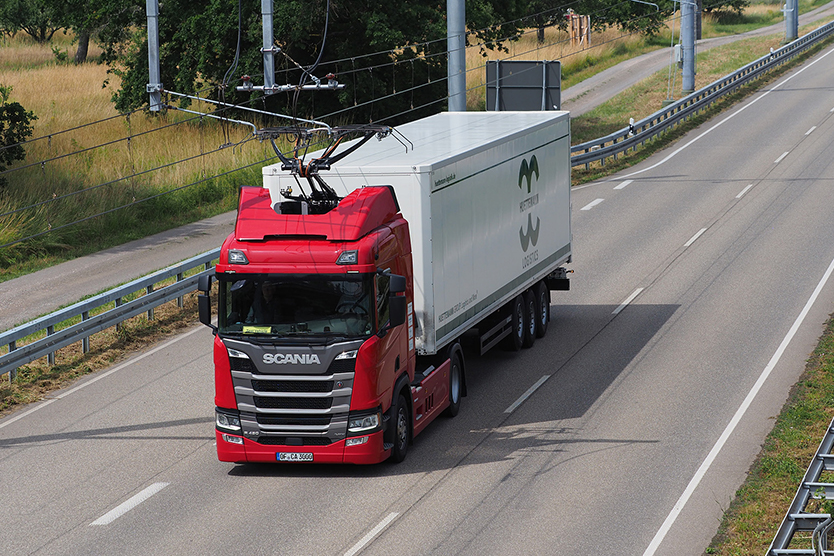
A new pilot project tests how hybrid trucks – charged with renewable electricity from overhead cables – run along an 18 kilometre strip of road near Rastatt.
© Verkehrsministerium BW
Electric batteries are not yet an efficient solution for heavy goods vehicles (HGVs), due to energy density limitations and long charging times. But overhead charging points on industrial routes could be a solution. Last month, a new pilot launched in Baden-Württemberg to test how hybrid trucks – charged with renewable electricity from overhead cables – run along an 18 kilometre strip of road on the B462 in the Murgtal valley near Rastatt. Four kilometres of it will be electrified, providing enough power to charge the vehicles’ batteries to their destination.
This is the third of three pilots from the eWayBW research consortium (led by the Fraunhofer Institute for Systems and Innovation Research ISI) since 2019. "The accompanying research evaluates the economic and ecological effects and analyses the acceptance of the pilot operation. This will provide valuable experience for the future design of sustainable road freight transport," says the project leader Professor Martin Wietschel in a state media release.
The B462 was chosen because 510,000 tonnes of paper are transported annually on the road from paper manufacturers in Obertsrot to a logistics centre in the Rhine valley. As well as the economic and energy efficiency aspects of the trial, the effects of noise and air pollutants and road planning measures will be taken into consideration. Alternative forms of propulsion will also be tried on the route: a pure electric truck, a hydrogen fuel cell HGVs and hybrid transporters where synthetic fuels are used in place of diesel.
The eWayBW consortium includes the Regional Council of Karlsruhe and various practical and research partners. The Federal Ministry for the Environment, Nature Conservation and Nuclear Safety (BMU), which has put EUR 26.4 million into the Murg pilot and in total has pledged EUR 103 million for all three projects (including ELISA and FESH on motorways in Hesse and Schleswig-Holstein) until 2024. The state's contribution is EUR 1.6 million.


